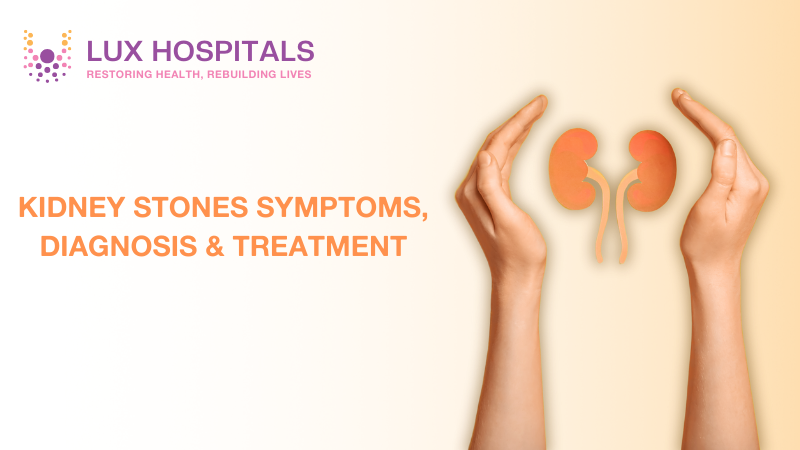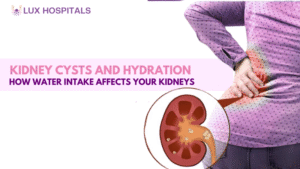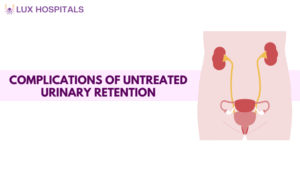Best Urologist in Hyderabad for Kidney Stones: Symptoms, Treatments & Care

Kidney stones are very common and affect millions of people globally. however, they also bring about great discomfort and various health complications. Knowing the symptoms, treatments, and preventive measures pertaining to kidney stones implored here will ensure effective management and relief.
If you live in Hyderabad and have problems concerning kidney stones, you must consult the best urologist available to ensure expert care and advice.
What Are Kidney Stones?
Hard mineral and salt deposits called kidney stones develop inside the kidneys. The size of these stones can vary from tiny grains to bigger stones. That causes severe pain and blocks the urinary tract. There are several reasons why kidney stones can form, including diet, dehydration, and genetic predisposition.
Kidney Stones Symptoms
Early recognition of kidney stones symptoms can help prevent complications. Common symptoms include:
- Severe pain: Usually located in the back, side, or lower abdomen.
- Painful urination: A burning sensation while urinating.
- Hematuria: Blood in the urine; the urine will appear pink, red, or brown.
- Increased frequency of urination: A need to urinate more often, but with only small quantities of urine.
- Nausea and vomiting: This may result from severe pain or a reaction of the body to kidney stones.
- Cloudy or foul-smelling urine : May signal an infection or other urinary problems.
If you have these symptoms, you should seek a kidney stone specialist to get the correct diagnosis and treatment.
Causes of Kidney Stones
When the chemicals in the urine are not balanced, kidney stones may form. Here are some common causes:
- Dehydration: if you don’t drink enough water, the urine becomes concentrated. Therefore increasing the risk of forming stones.
- Diet: High salt, sugar, and protein intake can increase the risk of developing kidney stones.
- Genetic factors: A family history of kidney stones increases the risk.
- Medical conditions: Conditions such as hyperparathyroidism or urinary tract infections can cause stones to form.
Knowing the causes helps in taking steps to prevent kidney stones.
Types of Kidney Stones
Kidney stones may be of various types, each with different causes and characteristics:
- Calcium Stone: The most common type, usually composed of calcium oxalate. They can be caused by ingesting foods high in oxalate, such as spinach.
- Struvite Stones: Most often occur with urinary tract infections. They can also grow and become large quickly
- Uric Acid Stones: Formed when the urine contains a high amount of uric acid. They are more common in people with gout and those on high-protein diets.
- Cystine Stones: The stones occur because a genetic disorder tends to make the kidneys pass more cystine
It is crucial to establish the nature of a kidney stone to assist in the selection of proper therapy and prevention treatment.
Kidney Stone Treatment
The treatment of kidney stones is dictated by the size of the stone, its nature, and the severity of symptoms. These are the common treatments for kidney stones:
- Medication: Pain relievers and drugs to relax the ureter help pass small stones.
- Hydration: Enough water dilutes the concentration of small stones, allowing them to pass naturally.
- ESWL (Extracorporeal Shock Wave Lithotripsy): The stones are broken up into tiny pieces to pass naturally using sound waves in this non-invasive procedure.
- Ureteroscopy: A small scope is passed through the urethra to locate and remove stones.
- Percutaneous Nephrolithotomy (PCNL): A surgical procedure for large stones that requires a small incision in the back to remove the stones.
A kidney stone specialist consults you for the best treatment according to your condition.
Kidney Stone Removal Procedures
If the kidney stones do not pass out, the intervention of a medical expert is essential. The procedures for kidney stone removal include:
- Laser Lithotripsy: This medical procedure uses a laser to break the stones into tiny pieces for easy passing.
- Surgical Removal: Large or complex stones may need surgical removal by either open surgery or minimally invasive techniques.
The choice of the right procedure is very important in reducing the chances of complications and facilitating a speedy recovery.
Kidney Stones Diet and Foods to Avoid
Diet plays a vital role in the prevention of kidney stones. A kidney stone diet helps in reducing the chance of recurrence. The important dietary recommendations are as follows:
- Increase fluid intake: At least 2-3 litres of water should be taken daily to dilute the substances that form stones.
- Limit salt: Lowering sodium intake decreases calcium levels in urine.
- Moderate protein: High animal protein intake can increase uric acid stone formation.
- Avoid foods containing oxalate: These include spinach, beets, and nuts, especially if you tend to form calcium oxalate stones.
Knowing which foods to avoid with kidney stones can go a long way in reducing the possibility of stone formation.
Preventive Measures for Kidney Stones
Prevention of kidney stones includes changes in your lifestyle and diet, coupled with regular medical care. Few are discussed below:
- Hydration: Drinking water constantly dilutes the urine.
- Balanced diet: Include a balanced diet low in salt and protein.
- Exercise regularly: Regular exercise keeps your weight under control, hence reducing the probabilities of forming stones.
Visiting a kidney stone specialist can provide more specific recommendations to implement based on one’s health history.
Best Urologist in Hyderabad for Kidney Stones
Hyderabad has many renowned urologists who specialize in managing kidney stones diseases. The specialty and subspecialty of such urologists use advanced diagnostic equipment and the latest treatment facilities for comprehensive management. It involves experience, patient reviews, and advanced facilities while making any choice.
Conclusion
Kidney stones may be a painful and recurring health issue, yet it is most definitely easily attended to with proper care. The kidney stone symptoms, causes, and treatment options are very important, and the information can help you go for early intervention.
If you are struggling with this in Hyderabad, then lux Hospital has the best urologist for kidney stones will guarantee you all-rounded treatment and support.
With such preventive measures and a kidney stone diet, you are sure to minimize the possibility of stone formation to a large extent and live a healthier, more comfortable life.
Frequently Asked Questions
Drinking water and medications may help pass small kidney stones, while larger ones may require treatments like shockwave lithotripsy or surgery.
The main cause of kidney stones is the buildup of minerals and salts, such as calcium, oxalate, and uric acid, in the urine, which form crystals that can harden into stones. Factors like dehydration, diet, and certain medical conditions can increase the risk.
Common treatments for kidney stones include shockwave lithotripsy, ureteroscopy, and percutaneous nephrolithotomy, which breaks or removes stones through sound waves, a tube, or surgery.
Urologists typically prescribe treatment for kidney stones, including medications for pain relief, to help pass the stones, or procedures to remove them if necessary.
Lux Hospitals distinguishes itself through a multidisciplinary approach, combining advanced medical technology with compassionate care to deliver personalized treatment plans tailored to each patient’s needs.




















